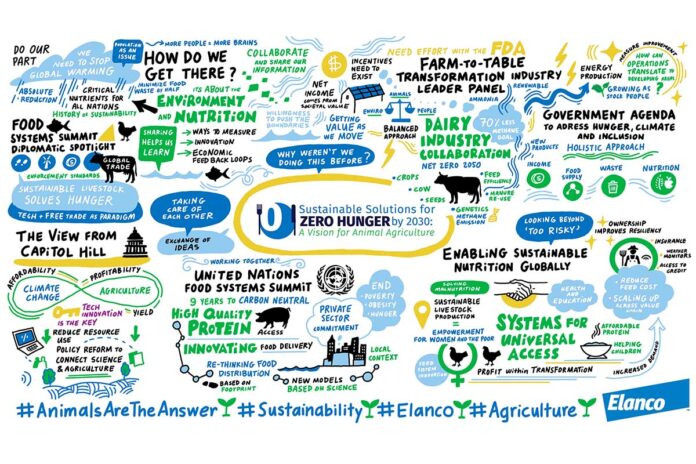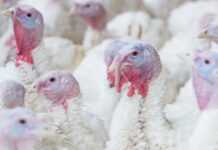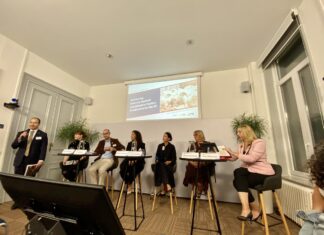
Science-based solutions explored, focus areas identified during landmark dialogue on how to balance nourishing the world while curbing climate impact.
Global leaders from one of the world’s largest industries converged in September at the Sustainable Solutions for Zero Hunger by 2030: A Vision for Animal Agriculture Forum to explore solutions to combat climate change while keeping the world nourished. Held ahead of the United Nation’s Food Systems Summit, more than 600 global business leaders, policymakers and key opinion leaders from a dozen countries convened to accelerate existing efforts moving livestock production toward climate-neutrality.
The issues: hunger and climate change
The day highlighted the urgent, time-sensitive issues of hunger and climate change. According to the United Nations, the world has just nine years left to curb emissions or see irreversible damage to the planet. Meanwhile, a full 30% of the world’s population lacked year-round access to adequate nutrition in 2020, leading to problems ranging from hunger to obesity to malnutrition. Right now, an estimated 811 million people globally face hunger and the world’s population is estimated to grow by an additional two billion in the coming decades, increasing protein demand even more. That demand must be met in an environmentally sensitive way to avoid additional strain on the environment. The recent Intergovernmental Panel on Climate Change (IPCC) Report detailed a grim future if greenhouse gases remain unchecked for another few years.
“This is a level of urgency we haven’t faced before, and it’s a level of urgency that intersects social, economic and environmental challenges,” said Jeff Simmons, president and CEO at Elanco. “We’re seeing the interconnection between calories and climate, and how meat, milk, fish and eggs play an absolutely critical role to achieve zero hunger and climate neutrality. Constituents from across the globe gathered to discuss potential ways to collaborate and catalyze change, making this the decade of opportunity for animal agriculture, as we aim to both feed the world and cool the climate.”
Participation from key government officials rounded out the day’s discussion. “I understand the role and place of animal protein,” said Dr. Agnes Kalibata, UN Secretary-General’s Special Envoy to the 2021 Food Systems Summit. “The UN Food Systems Summit next week recognizes that we need to come through on our Sustainable Development Goals, and this industry has the ability to do that. Animals may be part of the problem, but there are also ways that they can be part of the solution.”
The opportunity
The livestock producers are the only industry segment that sits at the center of both climate and calories. Animal protein – meat, milk, fish and eggs – represents 18% of the calories consumed globally, and 40% of protein intake. With decisive action, animals can be a critical, fast-moving solution to positively impact global climate warming through the reduction of methane. Both methane and carbon dioxide (CO2) are greenhouse gases contributing to the rapid pace of global warming. CO2 stays in the atmosphere for upwards of 1,000 years while methane remains for roughly 12 years. By significantly reducing methane emissions by just a third, achieving climate-neutral meat and milk, the overall rate of warming can slow, providing valuable time to address the more complex, long-term impacts of CO2.
For more on the event visit: https://www.elanco.com/en-us/sustainability/animals-are-the-answer.

















